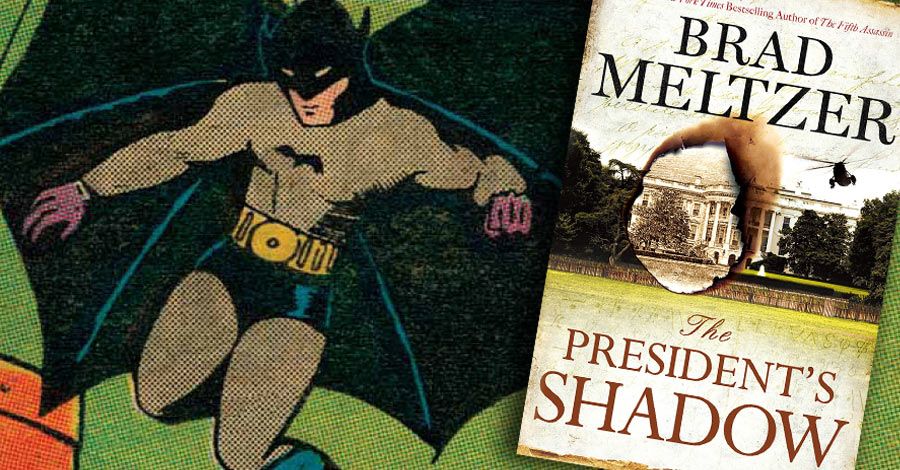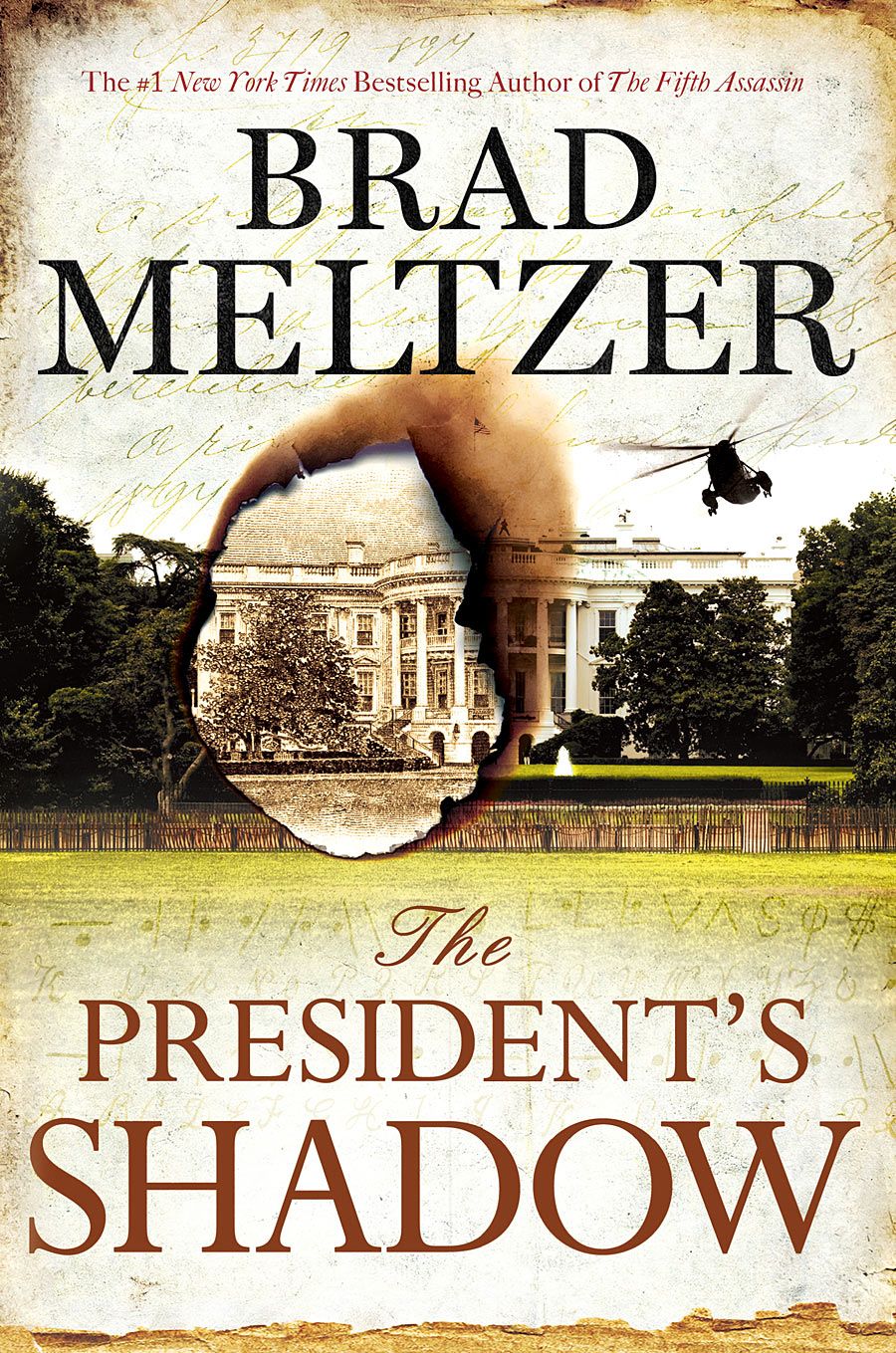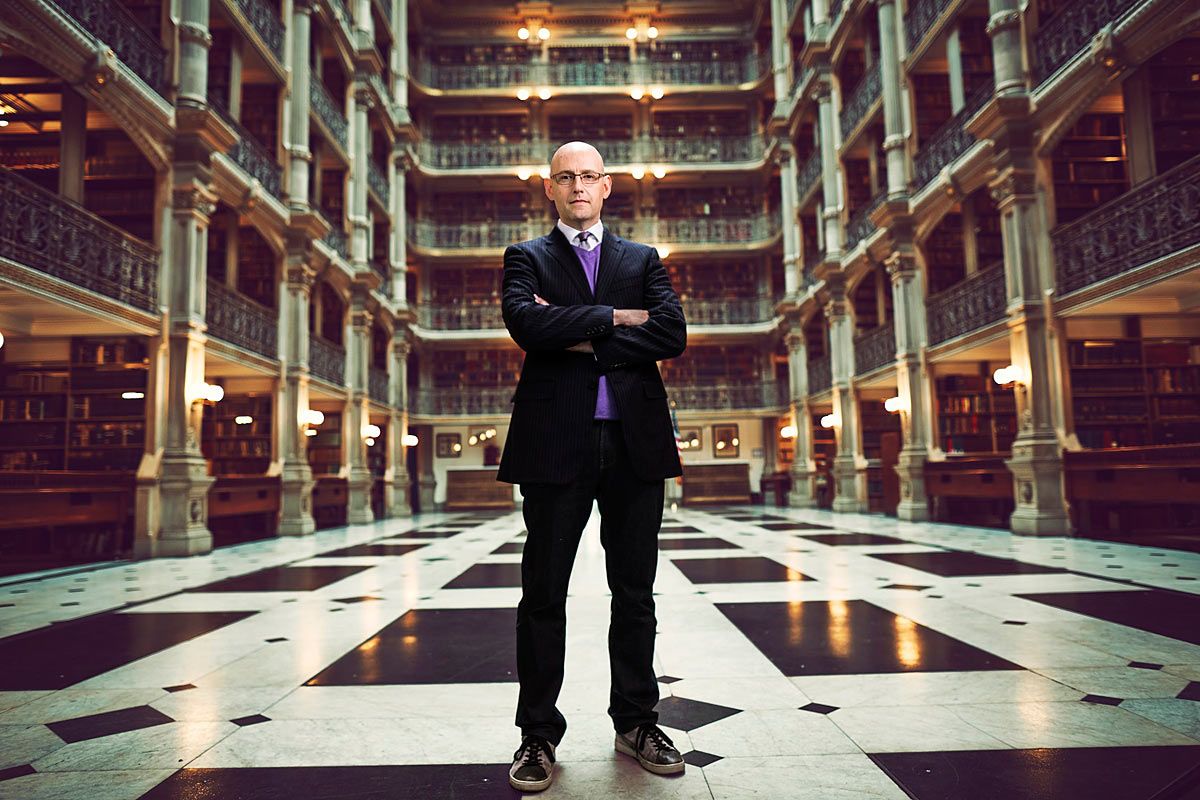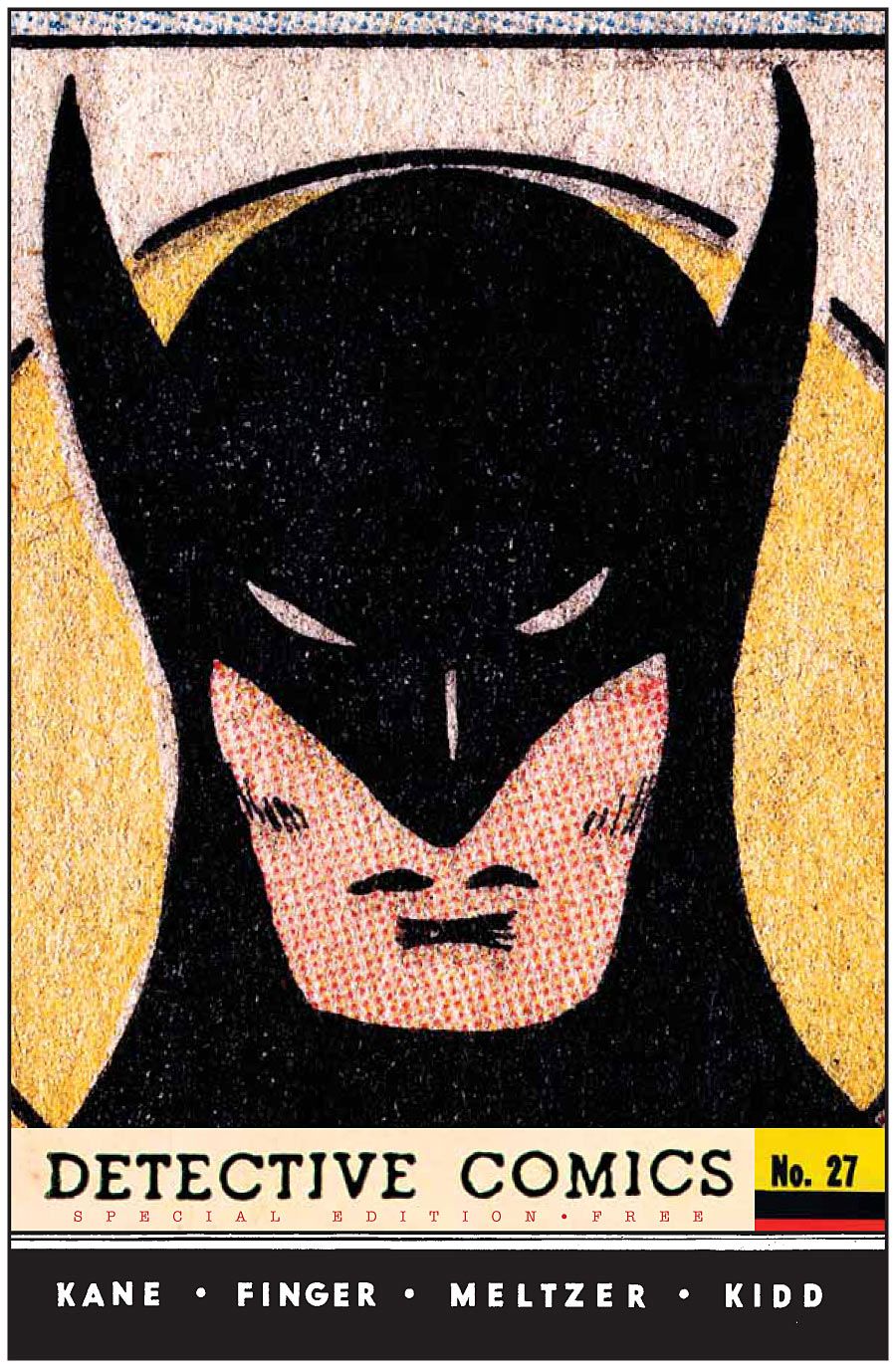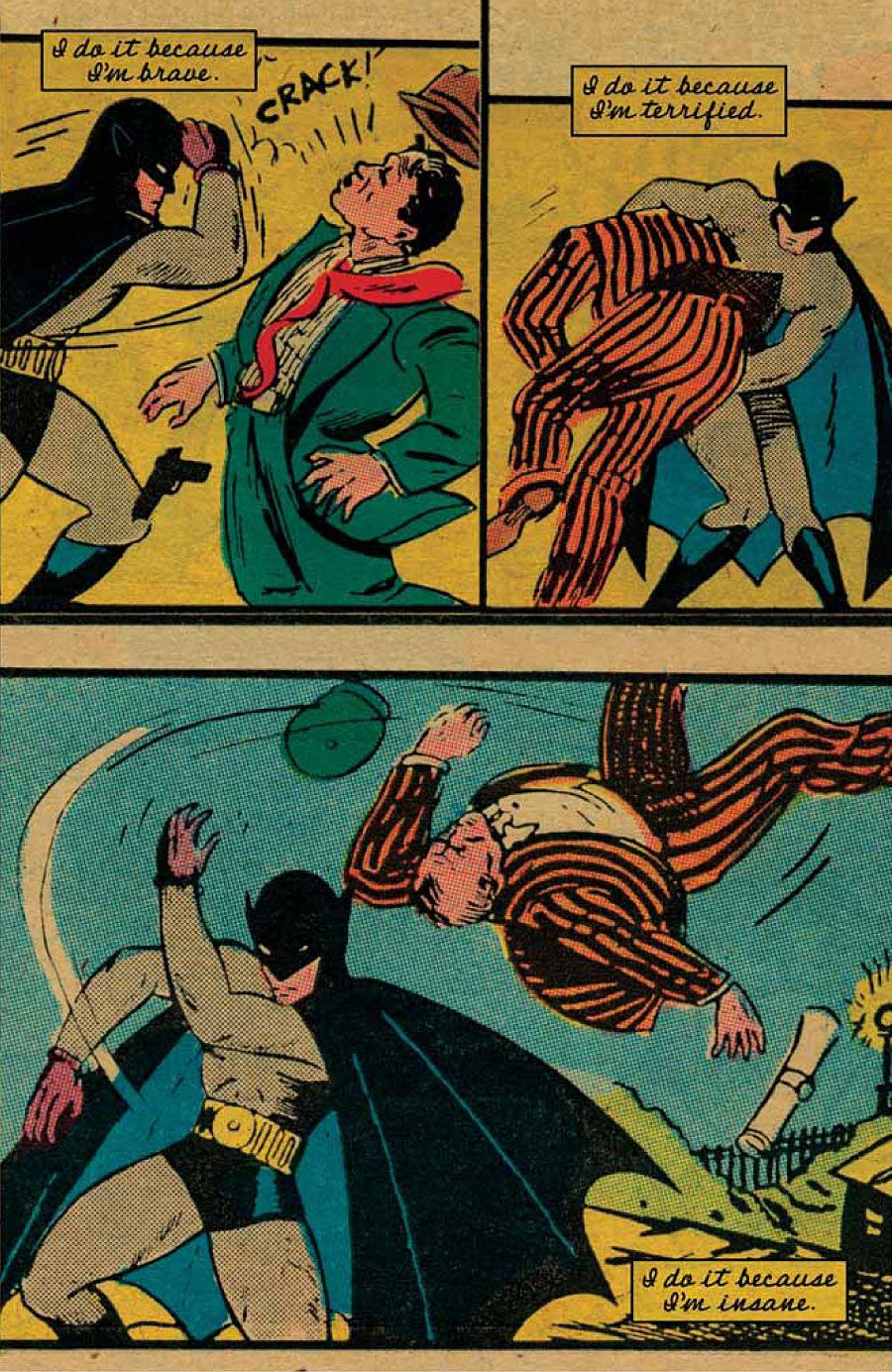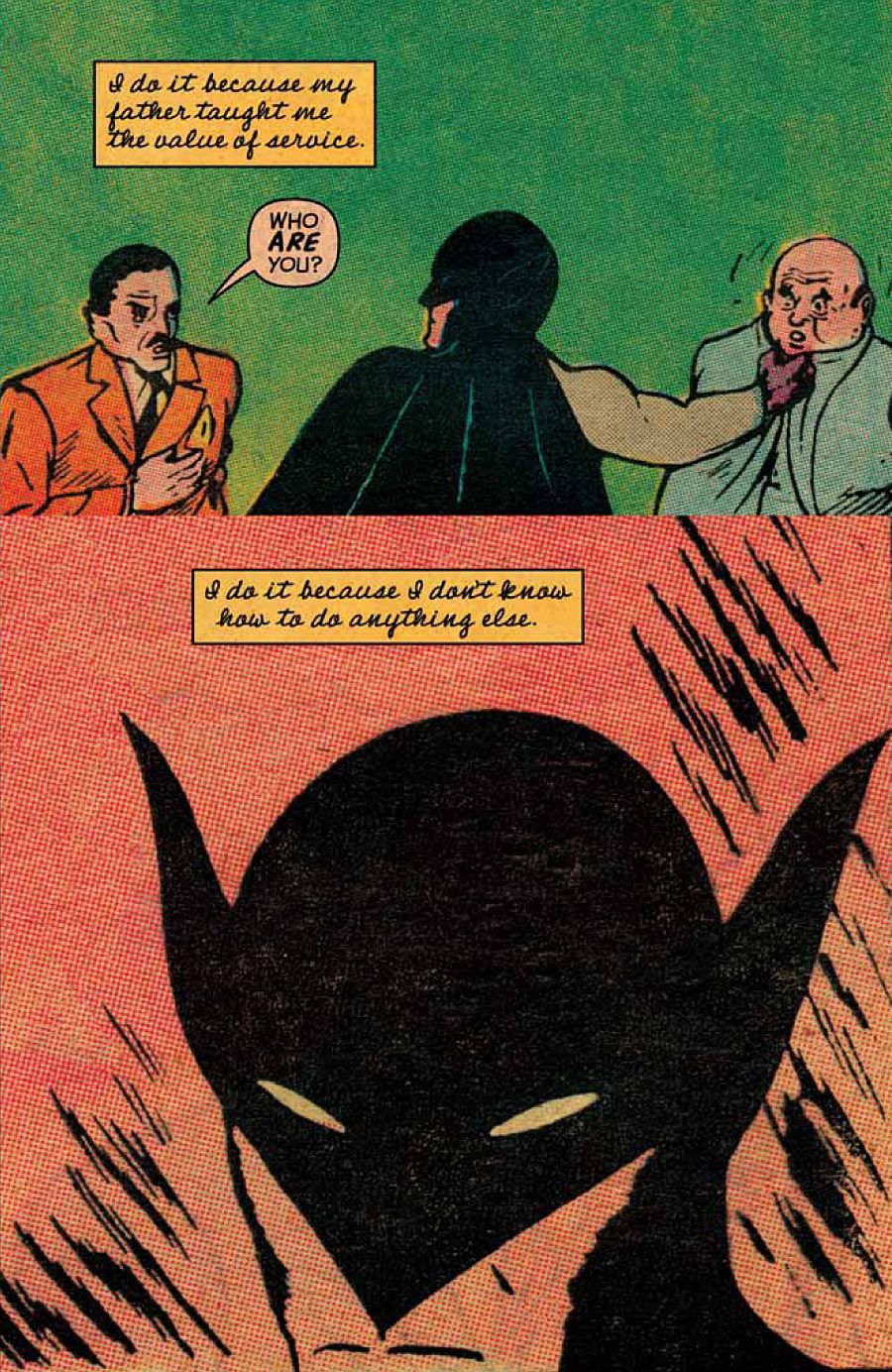Brad Meltzer is a man with many secrets, but the deep influence of comics on his writing isn't one of them.
A New York Times best-selling novelist, Meltzer has built his stories of centuries old American spy rings, Washington intrigue and politically motivated murders on a network of high-powered informants. Gathering dusty and dirty secrets from former CIA operatives and current Secret Service agents, the writer recently launched his second TV show, "Lost History," on the History Channel and just last week released his most recent book -- "The President's Shadow" -- through Grand Central Publishing.
Brad Meltzer Sets Off in Search of "Lost History"
Again starring Beecher White -- the National Archivist tapped to join the Revolutionary-rooted Culper Ring of spies -- "The President's Shadow" delivers up dismembered bodies to the White House and digs deep into the hero's past in a way Meltzer has never done before. The writer explained that his intricate and personal story only came about thanks to the serialized techniques he learned from his time writing comics like "Green Arrow" and "Identity Crisis" for DC Comics. And to merge the two worlds, the novel just saw a free eBook preview arrive at digital outlets paired with an exclusive Batman story: a recreation of the first appearance of the Dark Knight with Meltzer's script accompanying remixed art selected by designer Chip Kidd.
CBR News talked with Meltzer about all the ways his secretive thrillers and comics culture collided. Below, the writer explains how the strange tales of Washington that get delivered to him on a regular basis deepen his stories and scare his friends, shows why superheroes will continue to change his books and shares his secret origin with Batman fanatic Kidd. Fans can also catch Meltzer on tour now for "The President's Shadow" by checking his website, including a stop tonight with Brian K. Vaughan at Los Angeles' Moss Theater.
CBR News: Brad, your new novel "The President's Shadow" is the latest in a series starring Beecher White and involving the Culper Ring. How have things changed for you since you've been able to develop this world over multiple books, and what brought you to this particular story?
Brad Meltzer: The funny thing is that I can almost always pinpoint where I got the idea for a book from whether I was talking to someone who mentioned something I never heard of or something like that. However, in this case I just woke up with it. I woke up with the idea of a First Lady in the Rose Garden, and she puts her hands in the dirt and smells the mulch and is having this great moment -- and then out of the dirt she pulls a severed arm. I just woke up with that, and my wife said to me, "Now you're starting to creep me out."
So that was the general thought I had, but what I always do next is take the idea to the Secret Service and say, "What would you do next if this happened?" That's how the book unfolds. One of the things my contact from the Secret Service told me to do was do a renovation in the White House. They said, "Take a room, pull down the wallpaper and repaint it." I said, "What do you mean? What good would that do me?" and in that situation you can do an investigation, get the First Family out of the White House, get the press out of the way and let no one in the public know. You can essentially do whatever you want. It sounded like my guy didn't know what he was talking about, but he said, "Don't forget. Clinton and Bush and Obama have all renovated rooms in the White House, and you won't believe what gets done here in the name of home renovation." And that's one of those moment where you just say, "I get you now."
But in terms of Beecher himself, I have to credit Batman of all things. I never thought I wanted to do a series character, and it wasn't until I started writing comics all those years ago that I realized, "Wait. When you do a series character you can go so much deeper than you ever could in one book." I'd forgotten that. As a novelist I didn't know it, but as a comic book reader I knew it all too well. It was dipping into the comics side of my brain and saying, "Let's see what we can do here," and to me it's a much more satisfying picture.
RELATED: Brad Meltzer Hunts "The Fifth Assassin"
Earlier in the series, we got a sense of Beecher's personality and his job at the National Archives, but this seems to zero in much more on his past including a mystery surrounding his father. Does that set of ideas challenge you in different ways as opposed to crafting a thriller on a direct plotting level?
Yeah. The best mystery is the character himself. And again, it was the comic book world that did it for me. Even when I was offered "Green Arrow" all those years ago, I said to Bob Schreck, the editor at the time, that if I could come up with a Green Arrow story that mattered a great deal to Oliver Queen I was in, but if not I had no interest. I finally came up with one that worked and connected with Oliver's core, and that's when I pitched them "The Archer's Quest." And eventually it occurred to me: Why am I not using the same things in my novels? Why shouldn't this adventure cut to the core of the character rather than just to their adventure?
To me, the best comics stories are the ones that feel like they're that character's most important adventure, and it's the same thing here. You don't have to have read any of the other books before it. I just wanted to make this Beecher's most important adventure -- because the mystery he's solving is the mystery of himself.
You brought up earlier knowing people from the Secret Service, and I get the sense that over the years you've built up of network of people who can bring you information on secrets in Washington almost like the Shadow has his army of helpers.
Yes, I'm just like the Shadow. [Laughs]
But has that made it easier or harder to gather the kinds of ideas you play with in your books? When you're literally on television on a weekly basis talking about deep, dark secrets, do people tend to clam up, or do they bring even more weird stuff to you?
I still maintain that I have the best cover story for a CIA operative of all time. When President Bush -- Bush 41 -- said, "Come and spend a week in Houston," the reason he invited me was precisely because I'm not Bob Woodward. I'm not there to take a quote and rip apart some moment of his life. I'm an entertainer and a storyteller, and it's all fiction. So they say, "Take all the notes you want. I know you're not going to write about me." Because I'm not trying to directly quote or give people a public black eye, I think that I get much better access.
I will say that the television show has certainly helped with that effect. I spend time at people's homes now, as insane as that sounds. Someone just contacted me and said, "Would you like a tour of this very high-level secretive place?" for no other reason than they've read the books and watched the show.
And I've always said before that people are incredibly nice. People have asked me before, "What's your secret to getting this stuff?" and I always say, "Just ask." If you ask in a nice way -- like if someone called you up tomorrow and nicely said that they wanted to talk to you for ten minutes about how you do your job, you'd give it to them. If you tell someone you want to use their job or information to make a character in a book, the average person is going to say yes -- even if they work for a secretive organization. The only time they clam up is if you ask about a real specific thing. If I said to someone, "Tell me what happened in Benghazi" everyone would clam up. If I say, "Forget Benghazi. Make up a place and tell me how security would happen" then everyone is going to tell me.
Though while this is fictional and you use a fictional president in the story, you're also building off the idea of a real history where presidents frequently have secrets from the public -- some of which we'll learn eventually and some of which stay hidden forever. With "The President's Shadow," did you try to create a secret history that's too crazy to be true or so crazy it must be true?
I think that one of the scariest things that anyone has ever said to me was a dear friend who was there when Bill Clinton took office, and they explained to me that when the president is sworn in on that first day and gets that first briefing from the national security agencies, they realize that an entire world exists that had never existed before. That just scared the crap out of me -- because that's real. For me, I'm not scared by someone getting their head cut off in a gory way or blood gushing from your eyes. What scares me far more are the things that can actually happen to us.
So for this book, I tried to ground things in reality as much as possible. I came up with the plot, and then I went to some government people to say, "Could something like this actually happen?" One of them said, "You'll never know how close you actually are, and some of these things actually already did happen." That's when the research comes to life, and you realized "Oh my God. I made this up, but I'm actually onto something."
I remember at one point after I did the first Culper Ring book and was working on the second, I went to a former top level guy in the CIA. I said, "I'm working on this book where the Culper Ring exists today," and he said, "That's fictional? I'd heard they were still around."
Have you ever put yourself in the position where you go, "I'm too far down the rabbit hole for my own personal safety"?
For me, the one thing I get very conscious of is that I change the security protocols. You'll see what the room looks like. You'll see what happens in the room. But I'll never tell you how to get into the room. However, I remember when I did my first book where the Secret Service helped. It was a book called "The First Council," and in "The First Council" you get to see the secret underground tunnels that exist beneath the White House. A guy showed me the whole layout and told me exactly where they were, and you can see it one of the chapters. And when the book was done, I gave it to my contact and asked him to make sure he was cool with everything in it. He came back to me and said, "It's fine." And I said, "Are you sure? Why?" And he quickly said to me, "Brad, if you can find all this stuff from your home office, do you really think that a terrorist organization with millions of dollars can't do exactly the same thing?" And I realized that what he was really telling me was, "You're not that good." [Laughter]
Again, I take their trust very seriously. There are times when they say to me, "I'm going to tell you something that you can't tell anyone else. But you need to understand this if I'm going to tell you this other thing." And I never break that trust.
Meltzer Remakes History in "Detective Comics" #27
On the other side of the coin for this release, you've put out an eBook version of your story from the recent "Detective Comics" #27. But while the first version was your and Bryan Hitch's take on the original "Case of the Chemical Syndicate" story by Bill Finger and Bob Kane, this one is your story merged with the original art from the '30s as "remixed" by designer Chip Kidd. Aside from anything else, I found it really interesting that you have known him for so long. It seems like when you two met, the number of people working in mainstream book publishing that loved comics was like a secret club.
Man, it was a secret club. My first book ever is being published and they hire this guy named Chip Kidd -- who at that point in time had done the logo for this little book called "Jurassic Park" featuring a dinosaur skeleton -- to design my cover. Obviously, this was the master of all book covers, and here I am, this 27-year-old kid putting out his first novel. And they say, "Oh, you're going to meet Chip. He's going to do the cover. It's going to be great." But then he and I start going back and forth until after a bit we both realize we're insane Batman fans.
At that point in time, it was kind of like back when you were in high school and there was no internet, and you were the only kid in your high school who liked comic books. Back then, the only place I could find other fans was in the letters page like finding TM Maple writing a letter from somewhere. And I remember seeing people in there and thinking, "Oh my gosh, there are other people just like me out there." So when I found Chip, it was amazing. No one in publishing were like us then. It was just the two of us who liked comics, and so we were going to have fun talking about this stuff. Over the years, we've talked a lot. At every Miami Book Fair when he comes down, we go out to dinner and talk Batman for hours.
So this story was really fun because they said to us, "You guys have talked about this for so long -- now let's put it to use." When they gave me "Detective Comics" #27 to redo, I loved the idea that we'd take the original story, and while I'd write a new version of it, Chip could only illustrate with panels from the original. Obviously, that was an exercise in magic.
Looking over some of the pages, I found moments where he'd isolate a line from your script like "I do it because it numbs me" and puts it with an image of Batman on top of a guy beating the crap out of him. There were ironic or thematic moments like that throughout. Did anything surprise you about the final product?
I said -- and I still maintain -- that everything you need to know about Batman is in his first appearance. It's obviously not all there because there are pieces missing -- things that have to come later. But so much of it is right there. It's all so nearby. But when I looked at what I'd written in my story, I had no idea how Chip was going to combine the two. I think it speaks to the character and how the genius of what Bill Finger and Bob Kane did there was so rich that as a result, there was so much from Chip to draw from.
When you look at what Chip came up with in his version, I really believe that page after page of that thing could be pulled out and made into posters. He does those Lichtenstein close-up moments that really is all Chip Kidd these days, and it's great.
It seems that between the novel, the TV show and the Batman gig you've had a lot of overlapping work of late. Did you write the book while filming the show?
I did. But it's really because even though people see the show more, it takes less time to do than the novel. We have a whole staff of the producers and people at the History Channel who provide me with resources. With the novel, it's only me. No one does that research but me. It was nice because there would occasionally be things I'd find on the show that I could then use in the book. Like the Knights of the Golden Circle was something I think I first came across in the novel research, but then we used it on an episode of the show, and I realized I could use it in both. One thing fed the other in this strange "snake swallowing its tail" way. I wish I was super organized where I could work on multiple things in one day, but the reality is that when I'm filming the show, I can only do the show. Then I go back to write the novel. But we've worked out the schedule so I can do one right after the other.
And now with the book tour, do you stop worrying about your next creative project until this whole cycle is over?
Yeah, I actually use the tour to dream up the next novel. I remember that I wrote the scripts for "The Archer's Quest" on tour for "The Millionaires." I came up with it, and then at every stop I'd be brainstorming with my friend Noah Cutler who I mentioned in the afterward to "Identity Crisis." But he and I at every tour stop at random book stores would go, "What if Ollie finds this?" or "What if Ollie finds that?" I remember being on a Texas TV show on the local news, and they were about to announce me to walk out and be interviewed, and I was calling Bob Schreck on the phone going, "I've got the idea. It's called 'The Archer's Quest.'" So the tour is a great time to let your brain wander, which I think is a thing that every writer should do.
And there's one thing happening on this tour that I have to blame Comic Book Resources for. I'm doing this Brian K. Vaughan event in LA. A few years ago, CBR had me interview Brian at the end of "Ex Machina" which was one of my favorite comics of all-time. So when my book publicists told me I was going to do an event in Los Angeles that I should invite another writer to, the first person I thought of was Brian. And thanks to you guys, I was able to convince him to do it through maximum guilt. [Laughter]
"The President's Shadow" is on sale now.

